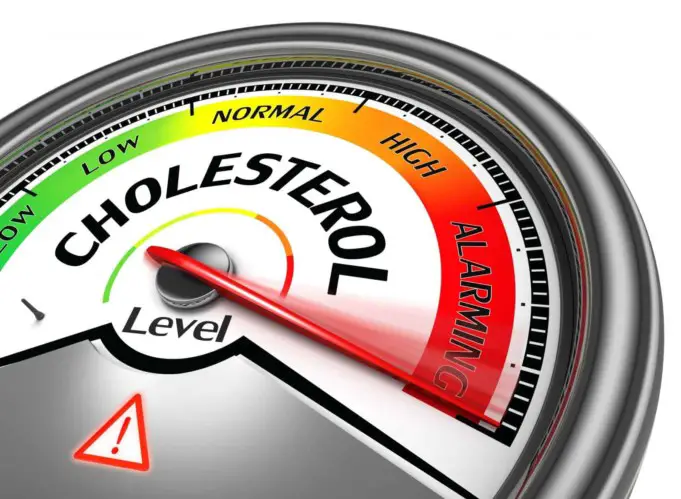Cholesterol is a fatty-like substance produced by the liver that is essential for the formation of certain hormones, vitamin D, and cell membranes. Cholesterol is insoluble in water, so it cannot travel on its own through the bloodstream.
The liver, therefore, produces lipoprotein particles, which facilitate the transport of cholesterol in the blood.
Lipoproteins come in two forms: Low-density lipoprotein (LDL) and high-density lipoprotein (HDL). Low-density lipoprotein, also referred to as “bad” cholesterol, can build up in the arteries and cause severe health problems.
High-density lipoproteins, also known as “good” cholesterol, returns the low-density cholesterol to the liver for excretion.
Causes of High Cholesterol
Eating foods with saturated fats is known to increase the level of cholesterol in your bloodstream. Furthermore, lifestyle factors also contribute to cholesterol difficulties. These factors may include smoking and inactivity.
Genetics also increases the chances of developing cholesterol problems. A condition in which the liver makes too much cholesterol may run in the family. People with this condition may not be able to avoid the rise in cholesterol levels even if they maintain a healthy diet.
In some cases, familial hypercholesterolemia causes cholesterol problems. Familial hypercholesterolemia is a genetic disorder that prevents your body from releasing LDL. Additionally, ethnicity, medical history, sex, and age can also influence the likelihood of developing cholesterol problems.
Other medical conditions, such as diabetes, kidney disease, liver disease, and high blood pressure, can increase cholesterol levels. Some medications also have the side effect of raising the level of cholesterol in your blood.
What Are The Symptoms?
High cholesterol does not show any typical symptoms until it causes emergency events such as heart attack or stroke. These events mostly arise due to the formation of plaques in the arteries. Plaques narrow arteries or even block the blood vessels completely.
The narrowing of arteries changes the arterial lining and may lead to severe complications. However, symptoms associated with this include chest pains, pain while walking, and angina.
Therefore, carrying out a blood test is the only way to know your cholesterol level. A person with cholesterol complications will have a total blood cholesterol level above 240mg/dl.
The American Heart Association recommends all adults over twenty years of age have their cholesterol levels checked every four to six years. If your family has a history of cholesterol conditions, your doctor will suggest for frequent check-ups.
Is There a Treatment?
Adopting a healthier lifestyle is the first treatment for high levels of cholesterol. Lifestyle changes include having a healthy diet and exercising regularly. However, if you have made these significant lifestyle changes and your cholesterol levels are still high, you may be advised to take medication.
The medications prescribed by your doctor can be based on several factors, including your health conditions, possible side effects, and age. Statins, cholesterol absorption inhibitors, bile-acid-binding resins, and injectable medications are some of the medicines that can be prescribed.
Statins are lipid-lowering medications that prevent the liver from producing cholesterol, instead causing the liver to remove excess cholesterol from the bloodstream. Statins can also help in reabsorption of cholesterol deposits on the arterial walls.
Cholesterol absorption inhibitors are lipid-lowering substances in the blood. The small intestine normally absorbs cholesterol from food and releases it into the bloodstream. These drugs, therefore, help in reducing blood cholesterol by limiting dietary cholesterol absorption.
Bile-acid-binding resins bind specific bile components in the gastrointestinal tract. The liver uses cholesterol to produce bile acids, a substance essential for digestion.
Cholestyramine (Prevalite), colestipol (Colestid), and colesevelam (Welchol) indirectly lower cholesterol from binding to bile acids. It prompts the liver to use more cholesterol to produce more bile acids, thus reducing cholesterol levels in the blood.
Lastly, injectable medications consist of PCSK9 drug inhibitors that help the liver to absorb more LDL cholesterol. The treatments help lower the amount of cholesterol circulating in the bloodstream.
With some positive lifestyle changes and, if necessary, some prescription medication, you’ll be able to combat high cholesterol and avoid any of the serious adverse health outcomes.












